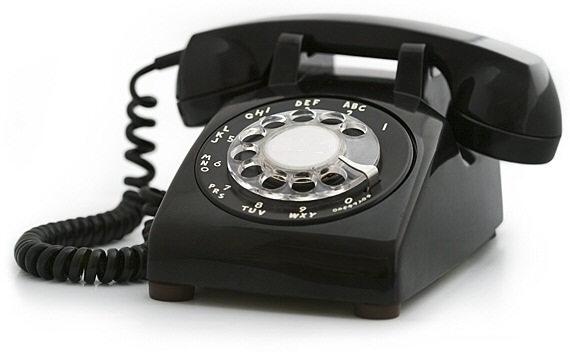God, we humans are dreadful at assessing risk. And you don’t need to do the ball exercise to prove it. Just ask anyone who
- Sweats more when flying 2000 miles than driving that far.
- Won’t let Caleb and Dakota play at the house of that neighbor who owns guns (“because I’m a good mother”) but encourages them to play at the house of the other neighbor, the one with that unforgiving deathtrap called a swimming pool.
- Figures that the 100% chance of getting a buzz off a few drinks is worth the smaller but still statistically significant chances of getting a hangover, getting a DUI, mouthing off to a stranger, getting in a fight, mouthing off to a friend, vomiting in public, making out with someone you’d normally avoid, losing your wallet or an article of clothing, sending a regrettable text (“U AND I WERRRE MEANT TO BE TOGEHTER!!!!! I SORY ABOUT EVERTHING BUT I LOVE U SO MUH!”) having to find your car the next morning, handing a day’s wages over to a cab driver, or performing one of the other quadrillion regrettable acts that we could have included in this paragraph.
- Buys lottery tickets. (The chance of a masked criminal entering the convenience store and shooting you while you wait for a ticket is greater than the chance of you winning. Heck, the chance of a 7-Eleven roof panel falling on your head and permanently incapacitating you isn’t far behind.)
People love to worry about and prepare for stuff that’s not going to happen, even if it means
- throwing away real money in the process
- guarding against a “disaster” that’s really more of an inconvenience.
In fact, for many of said people the idea of spending money on the unlikely event is a positive. To them, no price really is too high if it means being safe. But there are degrees of safe, and there are degrees of sorry. They can even overlap. To cite an example, one that could save you legitimate money:
For the 70% of you out there who STILL have landlines, one question: Are the customer service people at CenturyLink really that smooth that you can’t cut them out of your life? (“Para español, oprima numero dos.”)
$540 a year so you can make phone calls from the inconvenience of home (and perhaps a 50’-wide zone around your home, depending on how big the antenna on your cordless set is.) You know, as opposed to the full portability of a mobile phone. Which you have anyway.
Even the lists of features sound laughably old. Why, with landline service you can “Add popular calling features such as caller Id, voicemail, call forwarding”
Where to begin here? Voicemail has been around for 25 years. It’s a “popular calling feature” in the same way that a lettuce crisper is a popular storage feature if you happen to be in the market for a fridge. And again, all these features come standard on a cell phone. Which costs a little more, $80 or so a month, but that we can mostly agree is worth the convenience.
Note: The opportunities lost and time wasted in the exclusively-landline era are incalculable. It wasn’t that many years ago that arranging to meet people at a predetermined time and place was a crapshoot. Having to change plans at the last minute was either impossible, or more trouble than it was worth. We’re not the first people to point out that the plot of most every Seinfeld episode would have been destroyed if the characters owned cell phones, but that’s not the half of it. Popular songs were written about the simple but devastating misfortune of missing a hookup because the 2 parties in question spent undue time standing 1/8 of a mile apart. (Read the lyrics to Led Zeppelin’s “Fool in the Rain” or Genesis’s “Misunderstanding”.)
No way. I’m never giving up my landline. I need it for emergencies.
What emergencies? You will never have to call 911. And if you do, you can use your cell phone. Yes, there’s a chance you might get put through to the wrong dispatcher. Tell her when she answers, and she can fix it in 4 seconds.
But if there’s an intruder in my house, those 4 seconds are precious.
First, you should have bought a gun by now. Second, we’re now arguing about the infinitesimally unlikely. At this point you might as well ask your local landline provider if they can offer early asteroid detection for an extra $200 a month. Hey, better safe than sorry.
The chance of your visiting aunt suffering a grievous head wound and you somehow being unable to call a local ambulance is tiny. But the cost of that landline is certain and large. Quit paying it.
Seriously, though. What if the power goes out?
Then start a fire and tell ghost stories. On the North American grid, the power doesn’t go out frequently enough, nor for long enough periods, to justify that $540 expense.
And what if the power goes out? Who are you going to need to call? Do you pay the annual $540 in the event of that one instance every 20 years when the power does go out, your mother who lives on the other side of the country hears about it, and then she calls to make sure you’re “OK”, but she can’t get through? Not sure what that’s worth to you, but it’s worth less than $10,800 to us. Besides, she’s going to be dead by the time the power goes out again anyway.
Worrying about these unforeseeable events is the equivalent of the loopy financial pundits who insist that you create an “emergency fund”. Why do they do this, aside from the obvious reason (in case there’s an emergency)? Because it’s easy and pointless, like most things in life. Throw a dead cat and you’ll hit 8 personal finance bloggers who are proud of their $1000 emergency funds, on which they’re ready to break the glass on should it come to that. Even though they’re carrying several times that amount in credit card debt.
If you’re that convinced that moderate disaster is moments away, spend $2 on batteries and scour yard sales for a radio. Then you can burn your evenings waiting for a transmission from the Emergency Broadcast System, which again will never happen. Or if it does, it’ll be useless. “It’s snowing. Stay inside.” Which you couldn’t figure out by looking out your window.
Sell liabilities. Your landline is near the top of the list. (Unless you live in the white areas, in which case do what you must.)





